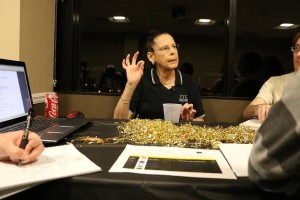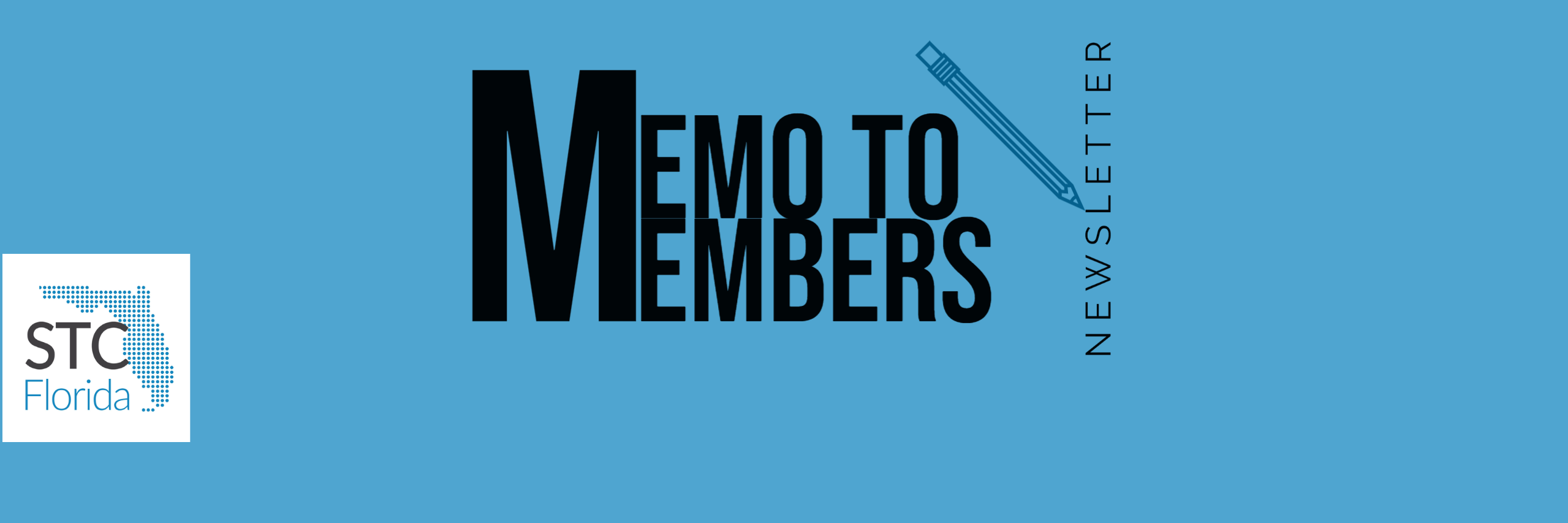 By: Nicole Garcia
By: Nicole Garcia
Staff Writer, Memo to Members
Karen Lane’s Topaz Venue, “Technical Editing,” proved to be a valuable lesson in the fundamentals of the trade from a veteran technical editor. Karen instructed visitors on the role technical editing plays in both the professional and academic worlds, as well as the skills and tools required to succeed as a technical editor.
Karen, who works as a freelance technical editor for graduate students writing dissertations and for scientists writing research papers, spoke on the value of a technical editor in the academic world.
“It used to be that you were expected to write your own dissertation from beginning to end,” she said. “Now, professors insist that their students hire an editor before they submit it. That’s where I come in.”
Karen also acknowledged the increasing role of technology in technical editing, pulling up a list of invaluable reference guides she uses to ensure grammatically correct copy.
“When I was graduating, the Internet was just being invented,” Karen declared. “Since then, my editing practice has drastically shifted from entirely on paper to entirely online.”
Aside from technology, the most important tool required to become a successful technical editor is an extensive knowledge of grammar and punctuation, Lane said.
“Knowledge is glancing at a sentence, immediately thinking, ‘something’s wrong here,’ and immediately fixing it,” she concluded.

